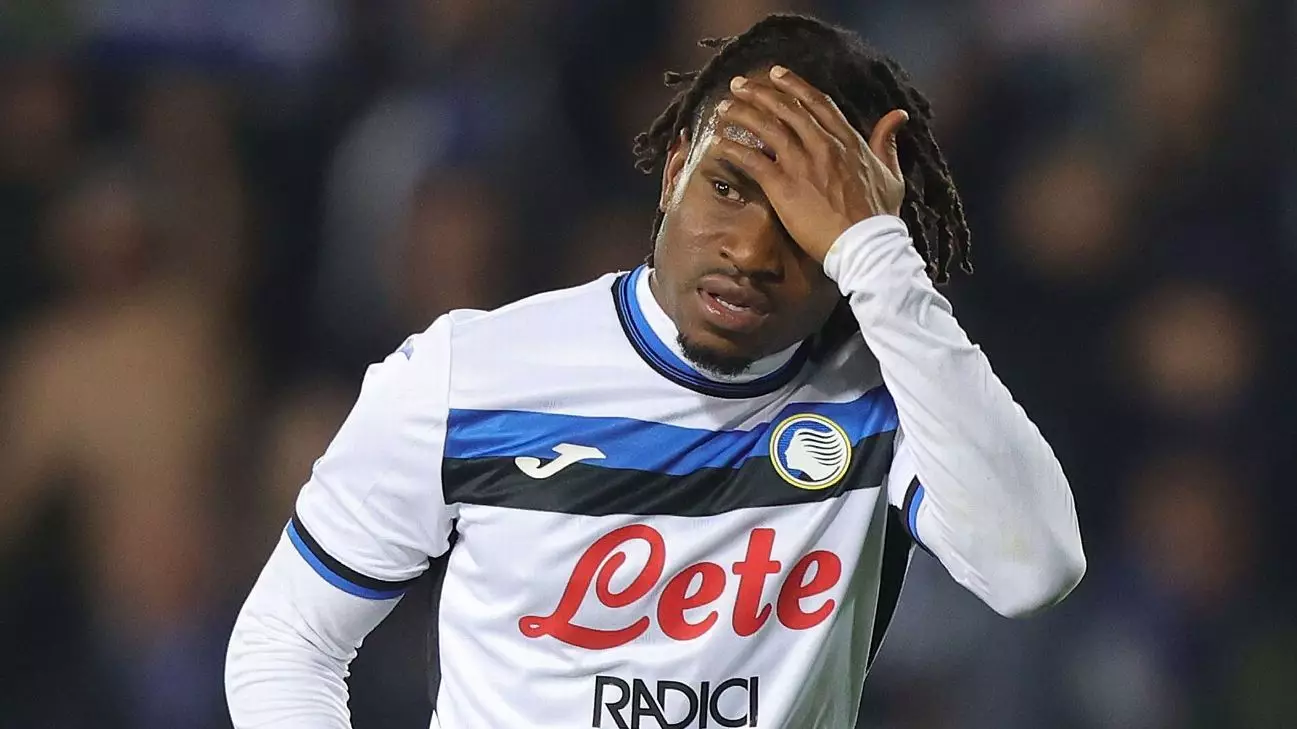The world of football is continually in flux, characterized by player movements, managerial strategies, and the ever-intensifying race for talent. Recent updates indicate that clubs such as Manchester United and Newcastle United are setting their sights on key players like Ademola Lookman, while Bayer Leverkusen’s Florian Wirtz garners interest from top European teams. This article delves into the intricacies surrounding these potential transfers, examining both the motivations behind them and their implications for the teams involved.
Ademola Lookman has become the focal point of attention for Premier League giants, particularly Manchester United and Newcastle United. Reports suggest that Lookman’s future at Atalanta is in jeopardy, fueled by a public fallout with manager Gian Piero Gasperini. The forward felt “deeply disrespected” after being labeled one of the worst penalty takers following a missed chance in a crucial UEFA Champions League match against Club Brugge. This incident symbolizes the growing disconnect between player and management, prompting speculation over Lookman’s next steps.
Newcastle Utd’s keen interest, reportedly backed by scouts, indicates a strong desire to bolster their attacking options. They face stiff competition from Manchester United, who are also on the lookout for reinforcements in their forward line. Such interest highlights a pivotal moment for both clubs as they seek to improve their standings in the league, potentially transforming Lookman from a squad player at Atalanta into a significant contributor at a top-flight English club.
The transfer intrigue continues with Bayer Leverkusen’s Florian Wirtz, whose stellar performances have put him on the radar of top clubs including Real Madrid, Liverpool, and Manchester City. Wirtz’s impressive tally of nine goals and ten assists in just 23 league appearances makes him an attractive target for those seeking to enhance their midfield options. With a possible impending move away from Leverkusen, the club’s proactive approach to identifying James McAtee as Wirtz’s potential successor indicates foresight in managing player transitions.
The likely departure of Wirtz could reshape the dynamics of the Leverkusen squad, with ramifications for competitive balance in both the Bundesliga and European competitions. The ongoing speculation surrounding his future inevitably raises questions about the broader trends in football, particularly how clubs are strategizing around burgeoning attacking talent.
As clubs strategize for the next transfer window, Manchester City’s pursuit of FC Porto goalkeeper Diogo Costa underscores the importance of a solid defensive structure. Given Ederson’s established position at City, the speculation around Costa as his potential replacement raises intriguing questions about the management’s long-term vision. Costa, who has already established himself as Portugal’s first-choice goalkeeper, is seen as a player with remarkable upside.
This move highlights a trend of clubs investing in young and promising talent, especially at key positions such as goalkeeper, where consistency and reliability are paramount. Moreover, City’s approach provides insight into the tactical considerations that influence transfer decisions, emphasizing the need for clubs to continuously evolve their squads to maintain competitiveness.
Conversely, not all news from the transfer market paints a picture of upward trajectories; Internazionale’s decision to part ways with Joaquín Correa reflects their frustration with inconsistent performances. The forward’s struggle for regular game time and nagging injuries showcased the risks associated with hiring players who may not fit into strategic frameworks. Correa’s exit could signify a broader shift in Internazionale’s approach to squad management, suggesting a move toward younger and more durable options in a league known for demanding consistency.
Adding further intrigue is Tottenham Hotspur’s negotiations with midfielder Rodrigo Bentancur over a new contract. The club’s commitment to extending Bentancur’s tenure reveals the management’s appreciation for his contributions under manager Ange Postecoglou. As he approaches the final year of his contract, securing his services is seen as crucial to maintaining the squad’s competitive edge.
These transfer narratives not only highlight individual player journeys but also serve as a microcosm of the wider industry dynamics. The focus on building and rebuilding squads reflects the necessity for clubs to adapt both tactically and strategically in an ever-evolving football landscape.
The current transfer milieu is rife with movement and speculation, revealing the multi-faceted nature of player transfers and club strategy. From the burgeoning talents of Lookman and Wirtz to the nuanced decisions surrounding goalkeepers and contract negotiations, this period promises to be transformative for clubs seeking to assert their dominance on the pitch.

